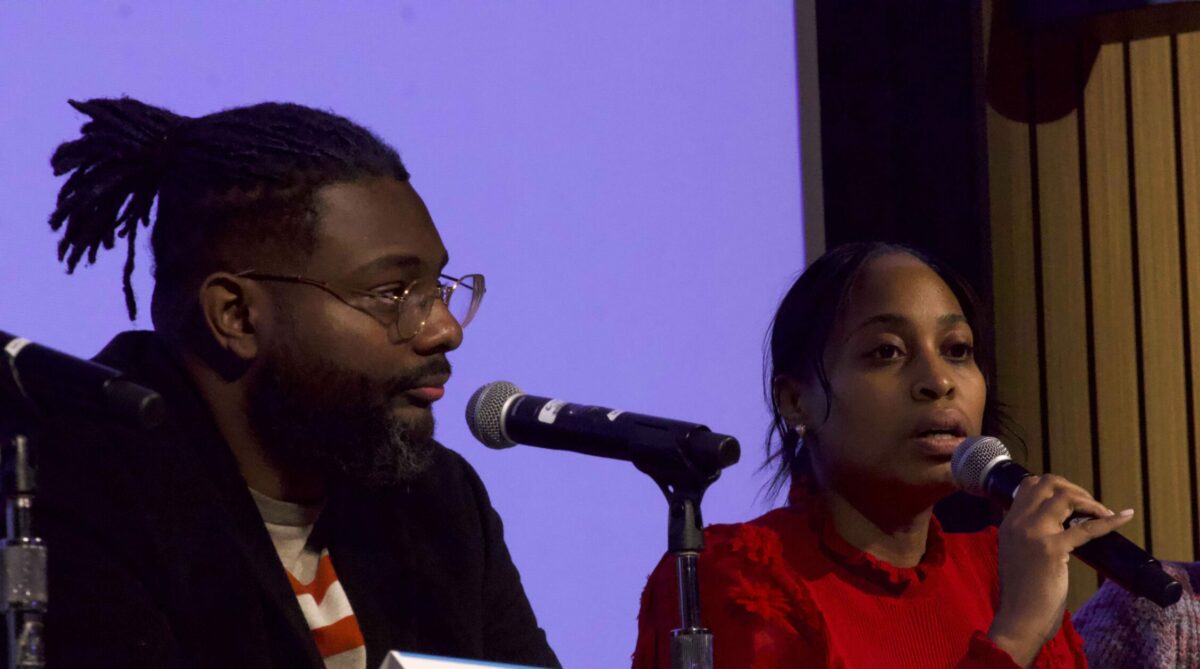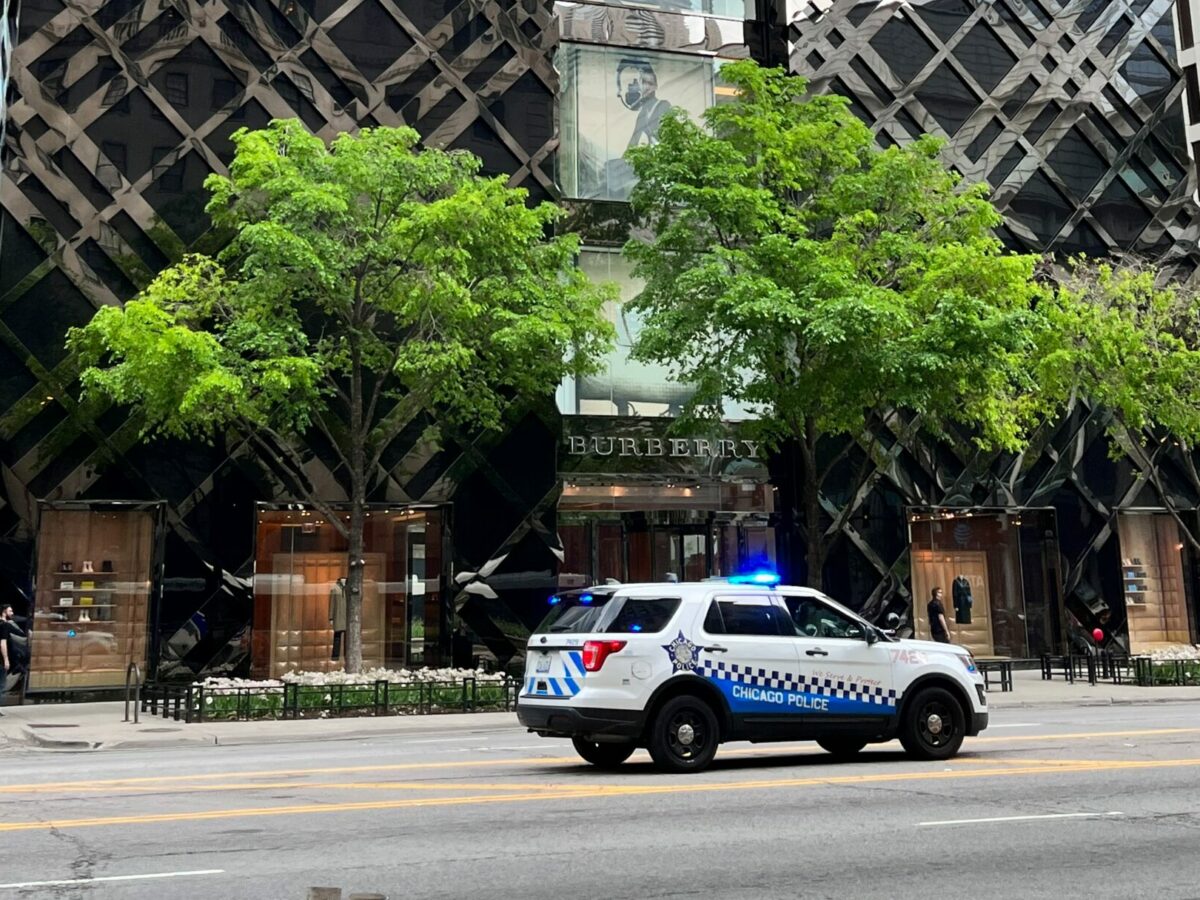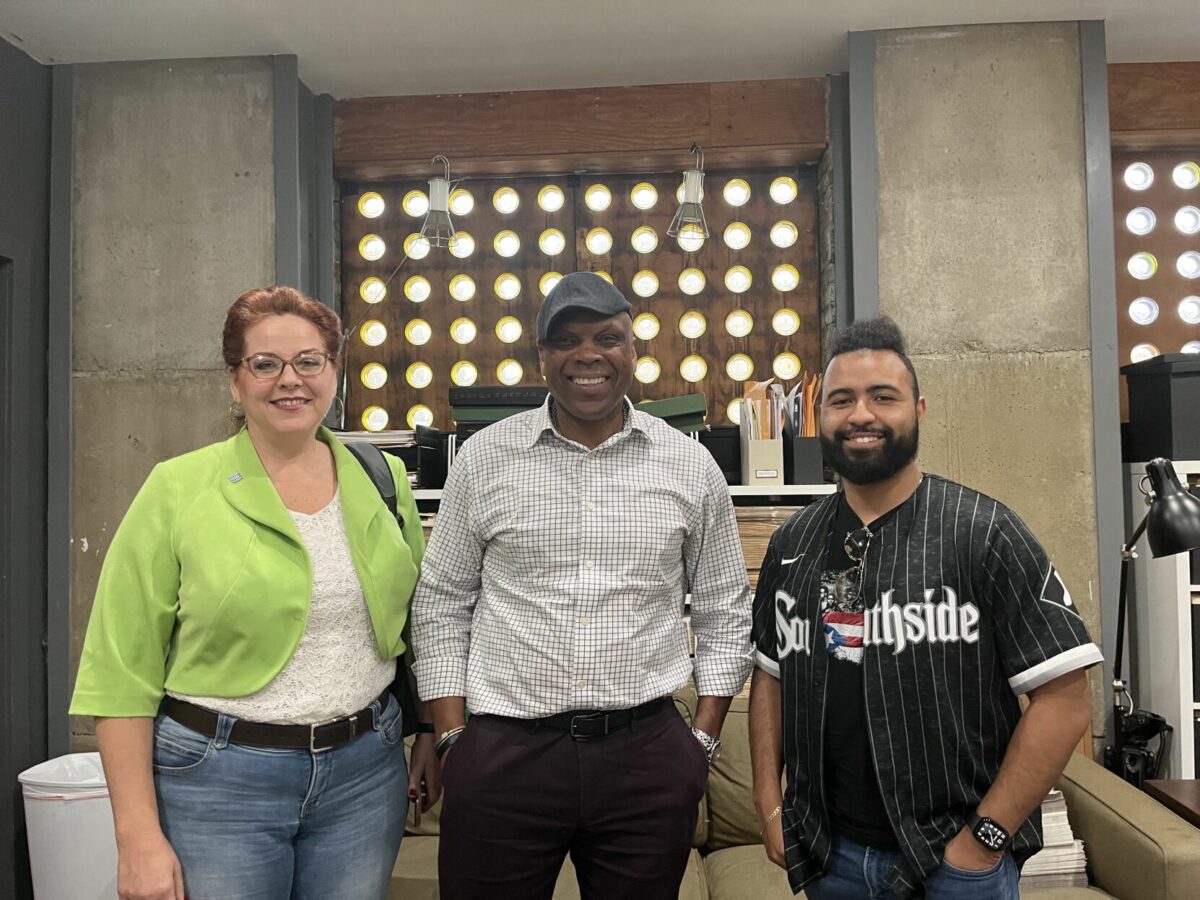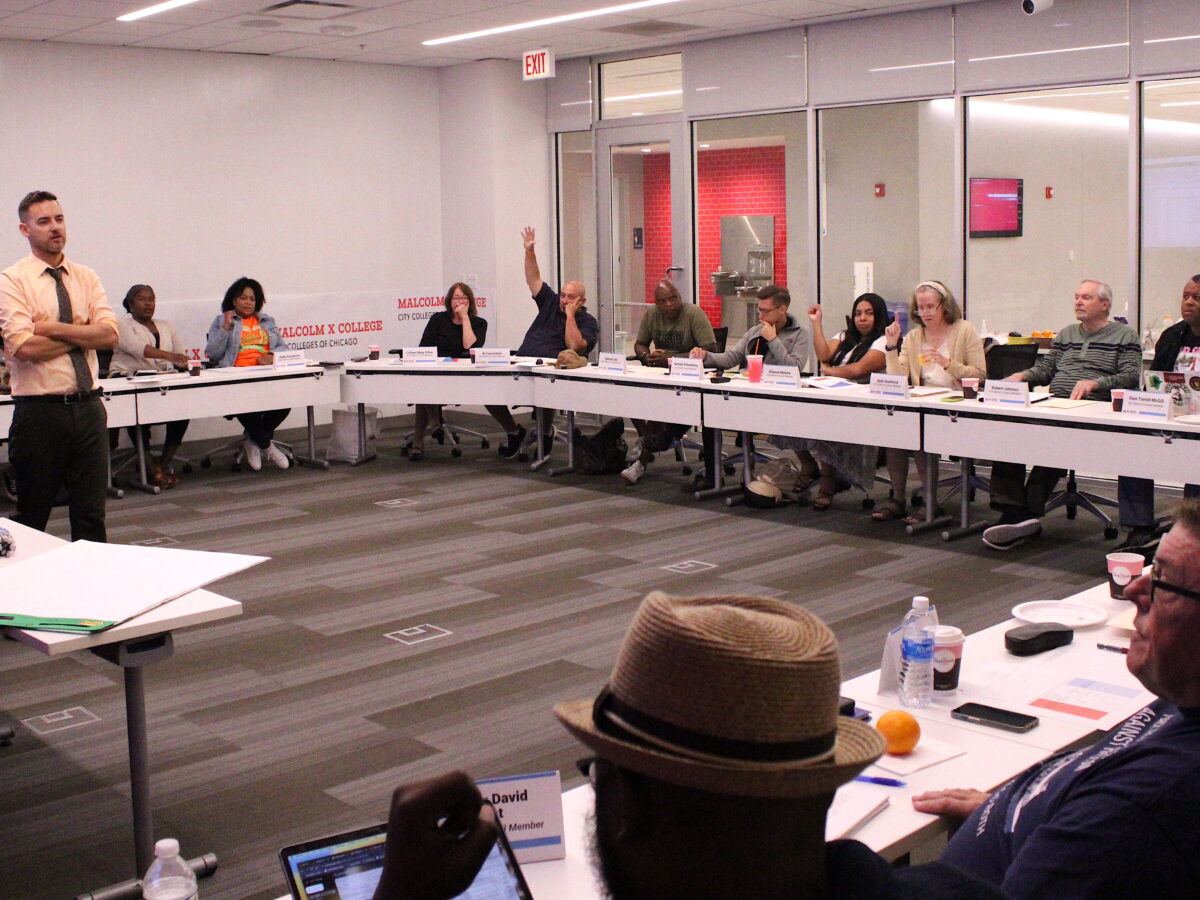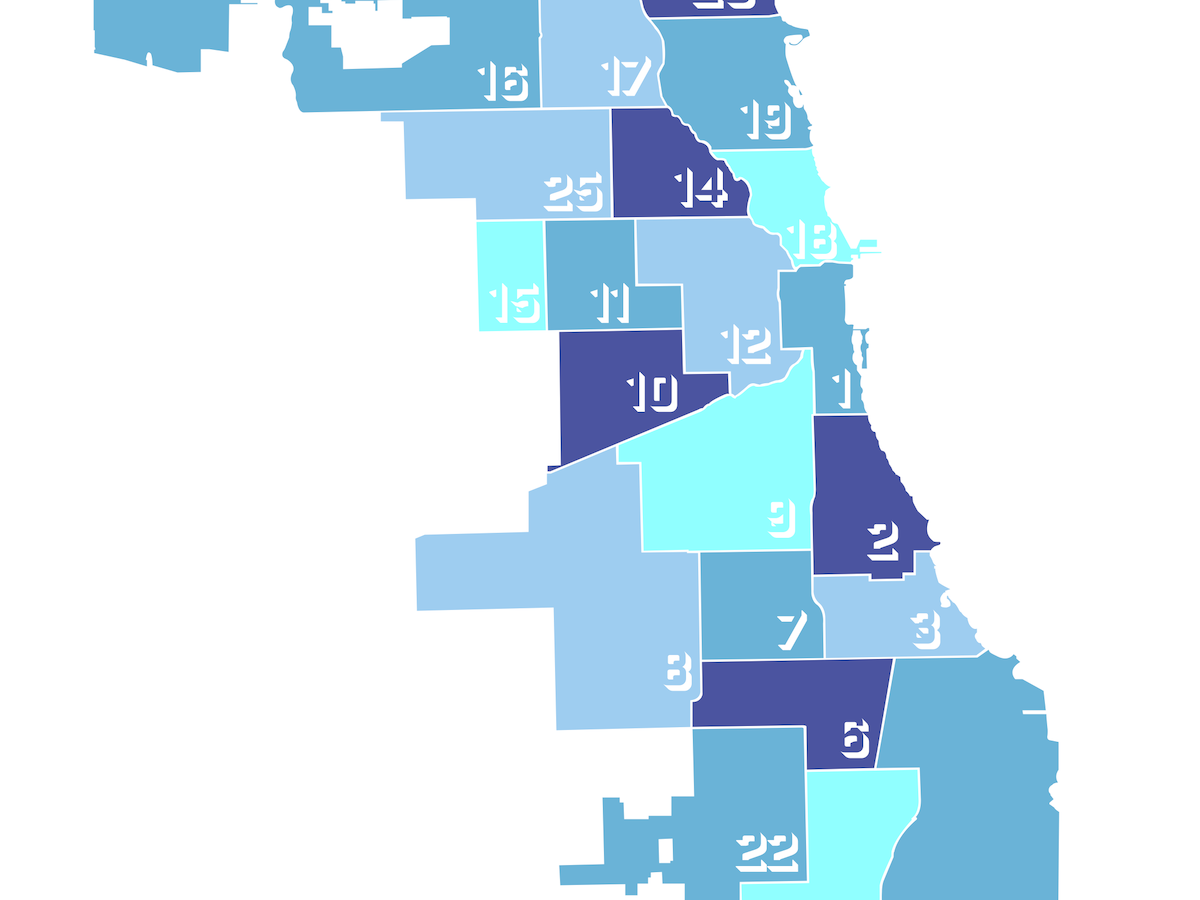Until yesterday, the interim members of the Community Commission for Public Safety and Accountability (CCPSA) had planned to hold this month’s meeting as a celebratory close to more than eighteen months of service. On March 8, the commissioners sent fifteen permanent CCPSA candidates’ names to Mayor Brandon Johnson. The mayor had thirty days to announce seven picks to forward to the City Council for approval, according to the Empowering Communities for Public Safety (ECPS) ordinance, which created the CCPSA in 2021.
On Thursday, however, word came down from the Fifth Floor: April’s meeting will not be the interim commissioners’ last. With approximately seventy-two hours until the deadline, the mayor’s office had not even done background checks on the fifteen candidates. Several of the candidates told the Weekly that as of Thursday afternoon, they hadn’t been contacted by the Mayor’s Office to schedule interviews.
The interim commissioners will have to wait another month for the end of their term.
Interim CCPSA Commissioner Yvette Loizon said that while she doesn’t mind staying on another month, she’s concerned about what missing the deadline says about the city’s commitment to public safety and accountability.
“What kind of message are we sending when we aren’t prioritizing our civilian oversight?” she said.
The news also frustrated Police District Council (PDC) members who spent months setting up the application and vetting process for permanent CCPSA commissioners.
“As a public body that is charged with accountability and public safety, we need our colleagues, elected officials, and other government bodies to do their part in collaborating with [the] CCPSA,” said Anthony D. Bryant, a member of the 3rd (Grand Crossing) PDC who served on the nominating committee. He added that committee members haven’t gotten any updates from the mayor’s office on the selection process.
Jamie Brown, a member of the 1st (Central) PDC who served on the nominating committee, said the delay is disappointing—particularly given the long hours, late nights, and weekends that committee members put into the nomination process.
“It’s one thing to be thoughtful and deliberate, which is important,” Brown said. “But it’s another [thing] to stick to timelines that are provided in statues that were created and passed by a democratic process.”
The nominating committee began meeting last August. Because it was the first time it had ever been done, the committee had to come up with nearly the entire process from scratch. Applications were due by February 7, and the ECPS ordinance required the committee to forward names to the mayor by March 8. Committee members narrowed a list of about 120 applications down to thirty-three candidates who they interviewed over two grueling weekends before selecting fifteen to send to the mayor—on deadline.
The committee “spent hundreds of hours to send highly qualified CCPSA candidates to the mayor. We followed every requirement of the [ECPS] ordinance to the letter, including our deadlines,” said 19th (Town Hall) PDC member Sam Schoenburg. “The last mayor ignored key deadlines in this law. That should not continue under Mayor Johnson. We all need to do our part for this system of community-centered policing and public safety to work.”
The ordinance requires the mayor to either appoint candidates from the nominating committee’s list or provide the committee with a written explanation as to why he declined to appoint them within thirty days of receiving the nominations.
In response to detailed questions from the Weekly, a spokesperson for the Mayor’s Office of Community Safety provided a statement Thursday evening.
“We are working through the process of selecting the most qualified individuals as swiftly as we can, while still adhering to procedural requirements such as background checks,” it read. “Once candidates successfully complete the vetting process, names will be submitted to [the] City Council at which point we will move forward. Our administration is committed to ensuring the most qualified candidates will represent the CCPSA and our community as a whole.”
Asked about the delay at a press conference announcing major reforms to the city’s development process on Friday, Johnson said: “We need people who are tethered to the community, who understand the type of accountability and the type of justice that people expect to see, [and] these individuals have to reflect that.”
The mayor did not directly respond to a question about the lack of interviews by his office. “I believe it’s important that we recognize that being in a hurry, there’s value to that, but being in a rush, that could be sloppy, and I’m not sloppy,” he said.
Related Reading
Mayor Johnson Rejects Nominee for 1st Police District Council
This is not the first time the Mayor’s Office has been slow to advance candidates for positions created by the ECPS ordinance. The 1st District PDC had a vacancy since last May, when council members were sworn in, because only two candidates ran for the three-member council. In November, the mayor rejected the CCPSA’s recommendation to fill the council vacancy—after four months of deliberation—and requested the commissioners forward another candidate.
It took another four months for the mayor and City Council to approve that candidate, Adrienne Johnson, for the PDC.
The fifteen CCPSA candidates are:
- Jose Abonce, a senior program manager for the Policing Project’s Chicago Neighborhood Policing Initiative.
- Anthony Driver, the interim president of the CCPSA and executive director of SEIU IL.
- Bernardo Gomez, the community engagement manager for the Mayor’s Office of Community Engagement and the chair of the city’s Disability Resource Group.
- Aaron Gottlieb, an assistant professor at the University of Chicago Crown Family School of Social Work, Policy, and Practice and a member of the Consent Decree Use of Force Working Group.
- Nakiyah Matthews, an academic advisor for Introspect Youth Services and a member of the NAACP West Side Branch.
- Abierre Minor, the chief fiscal officer of the Progressive Minds Show and the former chief of staff for state Senator Mattie Hunter.
- Art Mitchell, the deputy director for litigation and policy for the National Democratic Redistricting Committee.
- Angel Rubi Navarijo, the director of constituent services for 48th Ward alderperson Leni Manaa-Hoppenworth and a member of the CCSPA’s Non-Citizen Advisory Council.
- Kelly Presley, the associate general counsel of Catholic Charities of the Archdiocese of Chicago and a former attorney for the Illinois Department of Corrections, the Illinois Department of Children and Family Services, and the Office of the Public Guardian.
- Deondre Rutues, a research scholar and community engagement specialist for the Policing Project’s Chicago Neighborhood Policing Initiative who also serves as a member of the 15th Police District Council.
- Nyshana Sumner, an assistant state’s attorney who currently serves in one of the Cook County State’s Attorney’s Community Justice Centers.
- Remel Terry, the interim vice president of the CCPSA and the director of programs at Equiticity and first vice president of the West Side NAACP.
- Edward Washington II, a retired Cook County judge who previously served as national chair of the DOJ’s Violent Juvenile Offenders Program.
- La’Mont Williams, a South Side resident and the chief of staff for 3rd District Cook County commissioner Bill Lowry.
- Sandra Wortham, an attorney and administrative law judge for the City of Chicago and hearing officer for the State of Illinois who previously was a civilian CPD employee.
The CCPSA creates policies for the Chicago Police Department by drafting general orders; nominates candidates for the police superintendent, the chief administrator of the Civilian Office of Police Accountability (COPA), and the Police Board; and sets yearly goals for each of those positions. It can also fire the COPA chief administrator and hold hearings about the superintendent and members of the police board.
Loizon said the delay in appointing permanent commissioners could have a lingering impact.
“CCPSA is super important,” she said. “And the commissioners…need to be primed and hit the ground running. And so, the lag time for that new appointment is just disappointing because…I think it’s going to set the commission back a little bit. And I think when you set the commission back, you set the overall accountability structure back.”
Jim Daley is the Weekly’s investigations editor.

